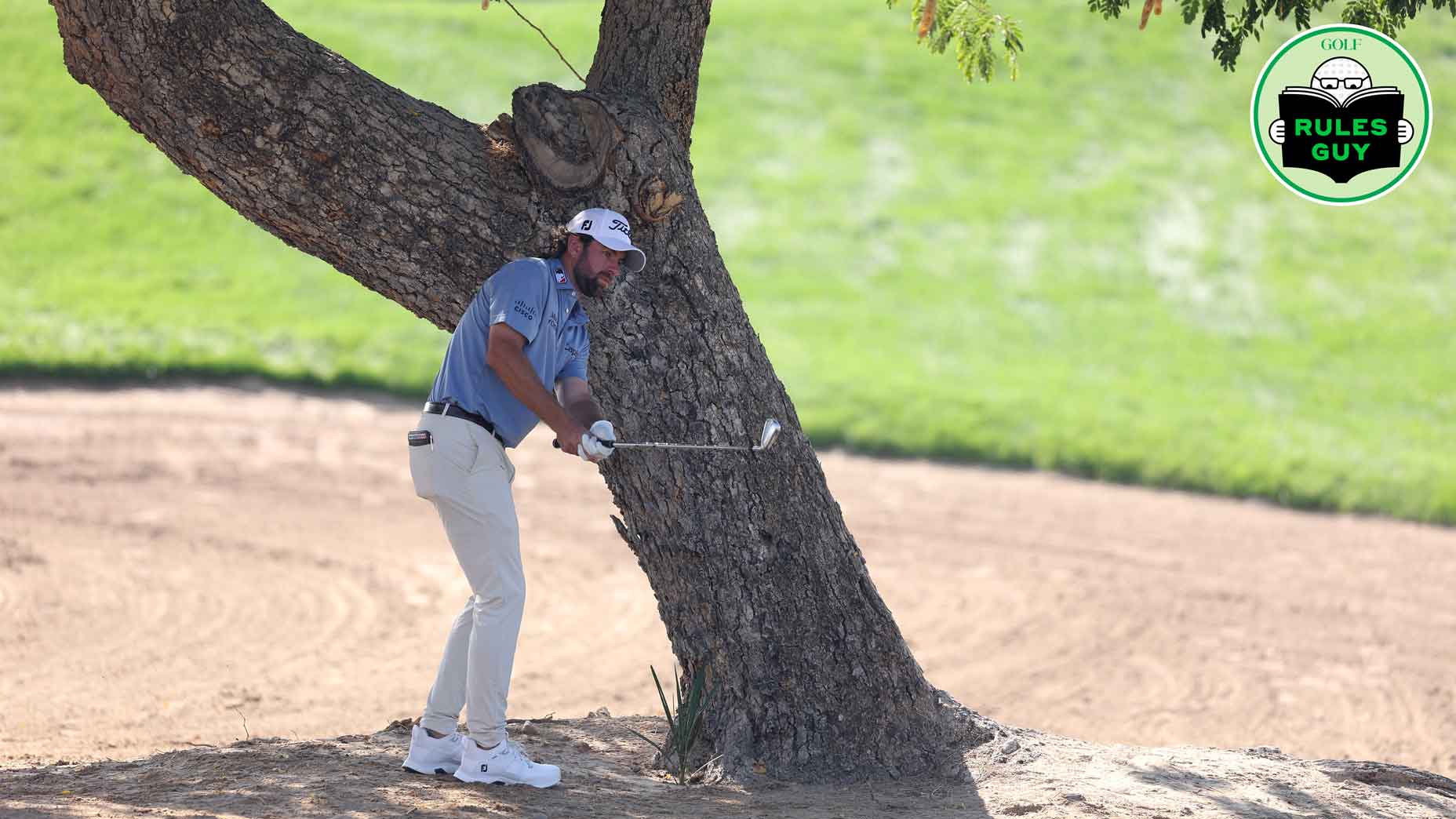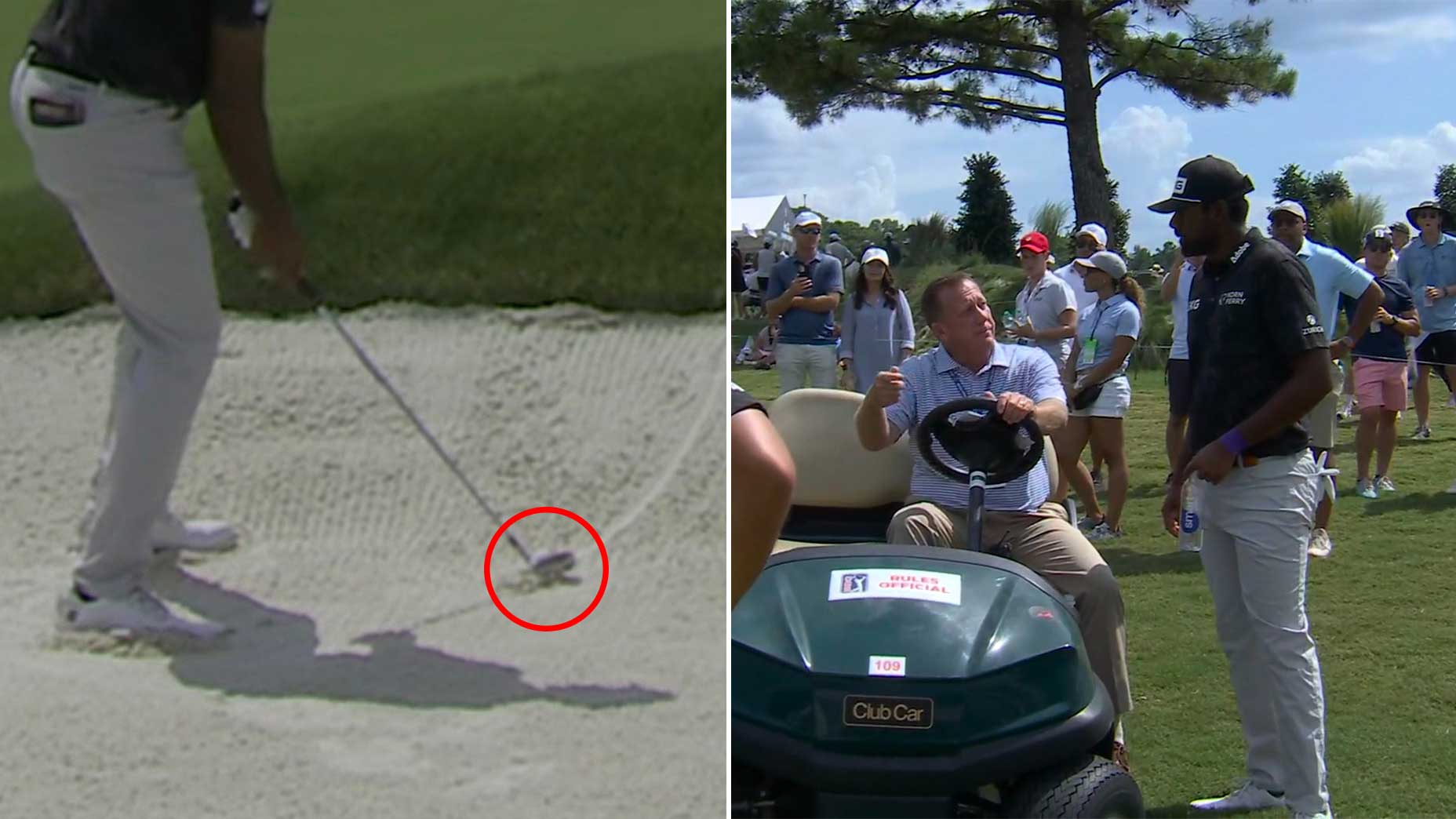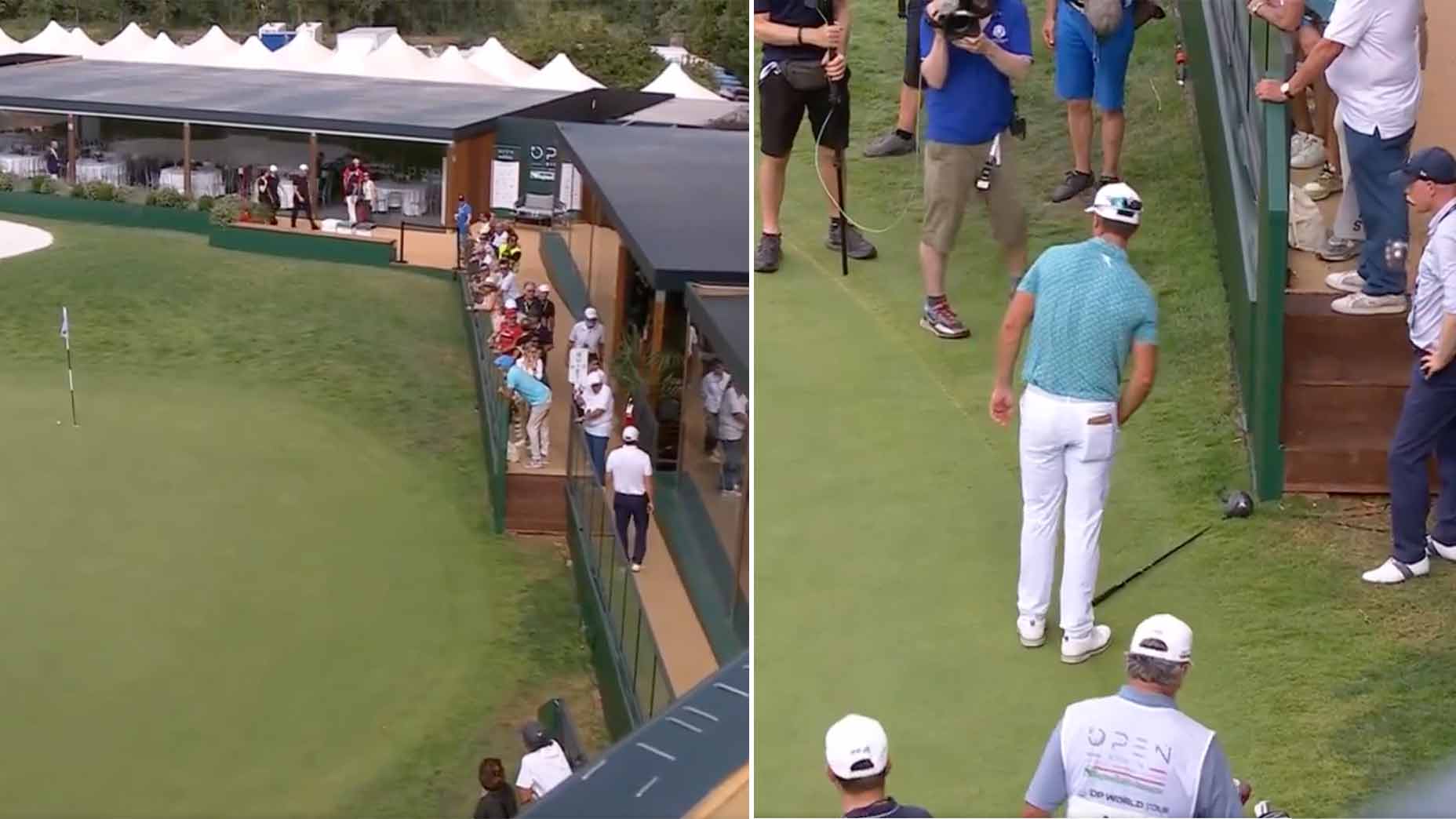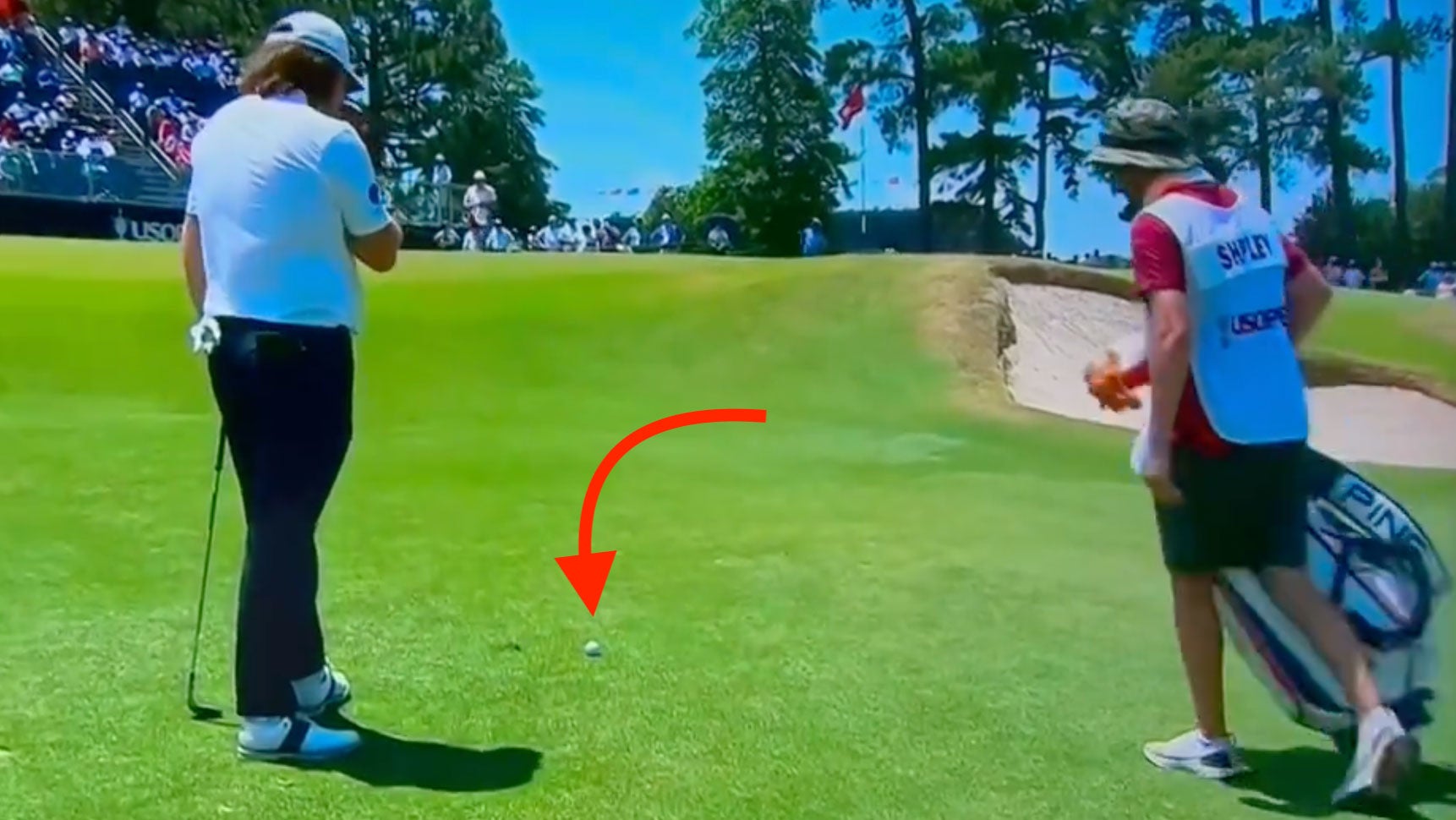Golf’s ‘leaf rule’ is in full bloom, friends. Here’s what that means

Nick Piastowski
This fall, should you be playing golf, and should you stray left, right, long or short, and should your ball find cover under fallen foliage, and should you fail in your search for it, despite knowing with certainty it has to be safe, there’s potential hope. Said another way …
Leave your worries behind.
Or!
Have them make like a tree … and leave.
(Sorry. Please stick around. Please don’t click away. It’s late in the afternoon, and this is all the author’s got.)
The point is, should a golf course or tournament committee be understanding, players can receive relief (re-leaf?) under the scenario presented in paragraph one, via Model Local Rule F-14 — which is more commonly known as the “Leaf Rule.” You may have heard of it. It might be new to you. So here it is, in its entirety, either as a refresher or as a bit of a lifeline:
“During play of the [specify hole number], any ground with temporary accumulations of [identify types of loose impediments ] in the general area or in a bunker is treated as ground under repair from which free relief is allowed under Rule 16.1.”
The USGA’s online rules book also says this, under “purpose:”
“At certain times of the year, piles of loose impediments such as leaves, seeds or acorns may make it difficult for a player to find or play their ball. A Committee can choose to treat such piles of loose impediments in the general area or in a bunker as ground under repair from which free relief is allowed under Rule 16.1.
“This Local Rule may not be used for penalty areas as relief is not available for abnormal course conditions in penalty areas.
“The Local Rule should be limited to the hole(s) where problems are created by such loose impediments and should be withdrawn as soon as conditions allow.”
In short, the rule essentially means you get a free drop if you can’t find your ball, you’re certain it’s in bounds, and it may, for example, be under a pile of leaves. And if the rule isn’t in effect? If you can’t find your ball in three minutes or less, it’s considered lost — and you have to re-hit, along with taking a penalty stroke.
Notably, there are a few other items to remember for the fall, and we’ll review a few with a short Q&A.
Can you move leaves?
Yes, and you can do so anywhere on the golf course, including in a bunker or penalty area — but if your ball moves while doing so, it’s a one-stroke penalty and you must put the ball back (unless it moves on the putting green; then you can just put the ball back and play on without penalty).
Do you get relief from aeration holes?
No — unless Model Local Rule E-4 is in play. That rule states: ““If a player’s ball lies in or touches an aeration hole: (a) Ball in General Area. The player may take relief under Rule 16.1b. If the ball comes to rest in another aeration hole the player may take relief again under this Local Rule. (b) Ball on Putting Green. The player may take relief under Rule 16.1d. But interference does not exist if the aeration hole only interferes with the player’s stance or area of intended swing or, on the putting green, on the player’s line of play.”
Do you get relief from fall maintenance projects?
Yes. According to a story written by Danny Vohden for the USGA’s website, “any holes or trenches created by the maintenance staff during those types of projects are considered “ground under repair,” and you’re entitled to free relief.”
Is there a proper way to dress?
Yes. according to GOLF Top 100 Teacher Sarah Stone, who said it’s important to layer up without feeling too bulky — and to never overlook the importance of keeping your feet dry.
“Layer up your clothes, but try to use thinner performance pieces that won’t be too bulky when you swing,” Stone told GOLF’s Nick Dimengo last year. “Perhaps choosing a vest to layer on top will make it easier to move as well.
“I also like to throw a pair of dry socks in a ziplock bag, just in case it rains. Wet feet are the worst.”











